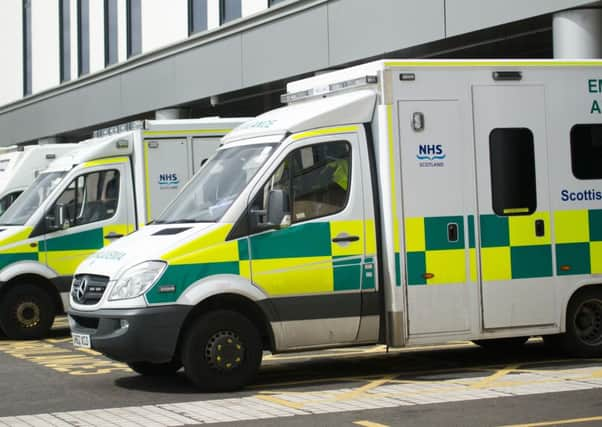Union says Scottish Ambulance Service in ‘critical condition’


The ambulance service is in a “critical condition”, with staff at breaking point, a new report has warned.
Research by the union Unison found ambulance staff are over-worked and highly stressed, with many thinking of leaving the service.
Advertisement
Hide AdAdvertisement
Hide AdMany workers have experienced violence and abuse, with six in ten saying they have suffered physical and/or verbal abuse at work, and 75 per cent of women saying they have experienced it.
Almost all (98 per cent) paramedics have experienced violence and/or abuse while working while 40 per cent of patient transport staff have suffered it.
The union warned a lack of staff and resources is putting patients’ health and, in some cases, lives at risk, and is also having an impact on the health and wellbeing of ambulance staff.
Unison is calling for urgent action to address the issues which emerge in its latest survey, An Emergency But No Accident, published today.
David O’Connor, Unison’s regional organiser, said: “This report reveals the immense pressure facing Scotland’s ambulance staff. It shows a dedicated workforce who are working hard to support the public under enormous pressure. They feel exhausted, undervalued and suffer violence regularly. They are struggling to deal with the demands placed upon them. The service is already in critical condition with ambulance staff at breaking point and demand is continuing to grow.”
The survey found that, despite an increase in funding and staff numbers over the past five years, demand has increased far beyond those resources.
It also found demand is increasing by 4 per cent per year, the equivalent of an extra 24,000 calls, but staffing levels are still too low to meet the increasing demand.
More than eight in ten ambulance staff (86 per cent) overall reported that their workloads are heavier, rising to 98 per cent among paramedics. Almost three-quarters (74 per cent) of respondents describe morale as poor or very poor while 25 per cent rate their job as ten on a one to ten stress scale. Meanwhile four in ten workers often think about leaving the service, rising to 47 per cent among paramedics.
Advertisement
Hide AdAdvertisement
Hide AdStevie Gilroy, Unison’s Scottish Ambulance Service branch secretary, said: “This report sends a stark warning to the Scottish Ambulance Service. Staff are struggling to keep up with the demands placed upon them and it’s not just the staff that suffer, it’s patients too.”